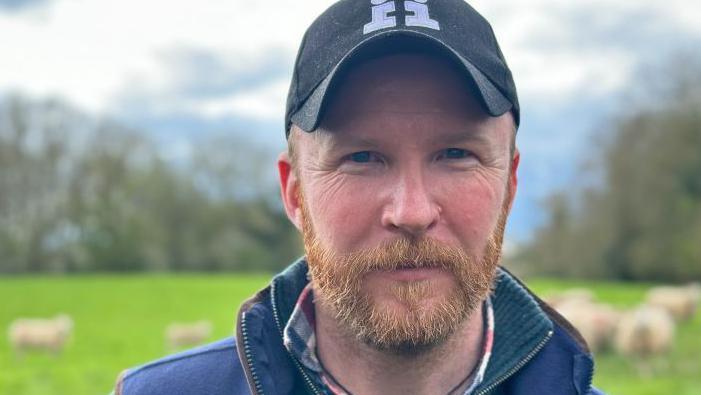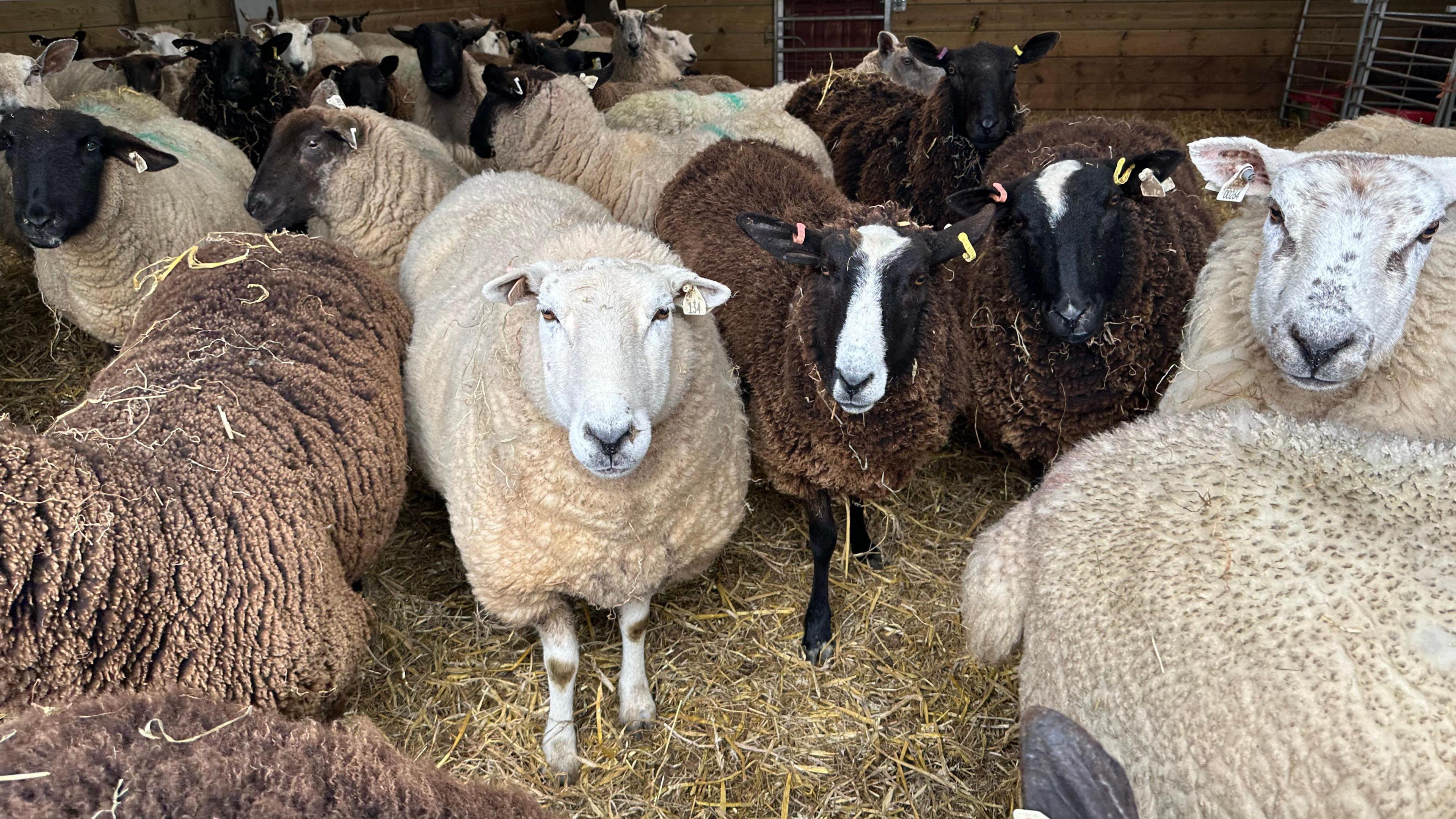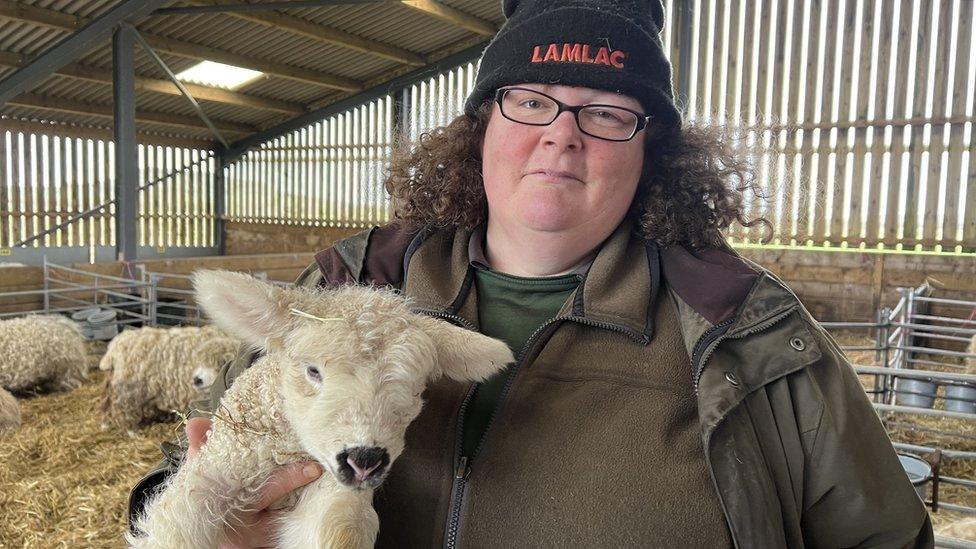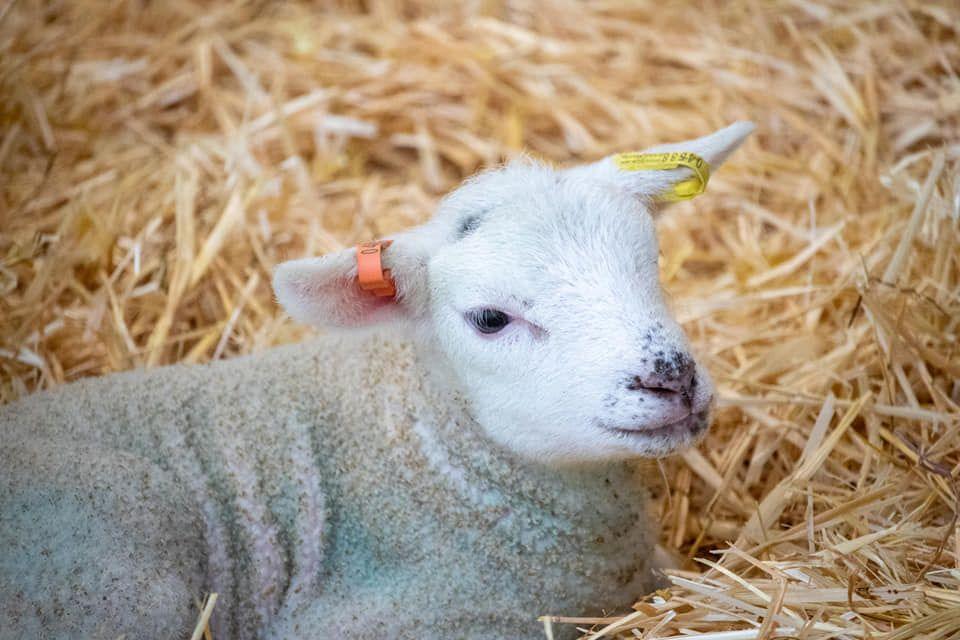Sheep farmers struggle with Schmallenberg virus

The virus has killed nearly 40% of the lambs on Ben Lowe's farm in Shropshire this year
- Published
Lambing on one family's farm took a "horrific turn" this year because of a virus that killed nearly 40% of the offspring.
Experts say the impact of the Schmallenberg virus is likely to be at some of the highest levels we've seen nationally, but that cases are likely being under reported and the true situation may be much worse.
Farmer Ben Lowe has a small flock of high value sheep that he raises on his farm outside Wem in north Shropshire, mainly as breeding stock although some do also end up on dinner tables.
On this farm lambing is hugely important, but it's also a family affair. Ben's three sons help out and they have their own smaller group of sheep that they look after within the larger flock.
But this year things have been very different, with the boys banned from the lambing sheds as disaster unfolded because of the Schmallenburg virus.
Infected midges
The Schmallenburg virus is carried by infected midges that blow in from the continent. If a midge bites a pregnant ewe, the virus is passed to the unborn lamb.
“They then pass it onto their lambs, which basically means lambs can be born either very deformed, with bent infused legs, normally dead unfortunately, but they can be born live,” Ben explained.
“But they will also present themselves as potentially perfectly looking lambs, but they’ll only last two to three hours until they unfortunately die.
"We’ve cried, screamed and shouted at each other whilst keeping the boys away from the lambing shed to shelter them from the heartache,” he added.
Flocks like Ben's tend to lamb earlier in the year and that means they were outside and vulnerable when Schmallenberg-infected midges arrived from the continent.
Much of that is down to the warmer, wetter weather we've seen recently. Without a cold snap to kill infected insects, the risks of Schmallenberg have been much higher.
And it's not just lambs - the impact of Schmallenberg is also devastating for the ewes, nearly half the flock is left crying for the lambs they lost and also at risk of mastitis from the milk they are producing but that isn't needed.
Worse, the dead and deformed lambs often mean a caesarean has to be carried out, but the whole process is so messy with deformed lambs that infection and death of the ewe becomes very likely.

The virus has a devastating impact on both ewes and lambs
In other countries, sheep develop natural immunity after encountering the virus.
But because here we are on the edge of the infection zone, the virus comes and goes with the midges. It means building up immunity long term is much harder for our national flock.
So is what happened on this Shropshire farm a one-off or are other farmers also affected?
Building up a picture is very hard. There are systems in place that allow farmers to take dead lambs for analysis. But talk to Ben and he admits there's little chance of that happening.
When lambing goes well, farmers are still hard pressed to leave the lambing shed, and when it's going badly a farmer is focused on just surviving and saving as many animals as possible.
The Warwickshire-based Agriculture and Horticulture Development Board (AHDB) works with the University of Nottingham to carry out a survey of the impact of Schmallenberg and although it is still underway they shared some early results.
According to preliminary data, it seems the impact of the disease this year is widespread and severe, with some farmers losing 100% of their lambs.
Dr Rachel Tarlington explained to me that the impact of the disease won't just be seen in sheep. We are also starting to see infection in cattle. But with cows having a longer gestation period than sheep this will take longer to become apparent. Schmallenberg may also cause milk yields to drop.
Currently no vaccines for the disease are available in this country.
Back in Shropshire, Ben is about to start lambing a second group of sheep. The hope is as they were pregnant later in the year they missed the infected midges and will escape the disease.
But Schmallenberg remains a real threat to sheep and cattle, one that seems to be getting worse. It's also a threat the financial and emotional wellbeing of our farmers and their families.
Farmers can find more information about schmallenberg on the NFU website, external.
Those wishing to participate in the AHDB survey can find more details here, external.
Follow BBC West Midlands on Facebook, external, X, external and Instagram, external. Send your story ideas to: newsonline.westmidlands@bbc.co.uk, external
Related topics
- Published11 March 2024

- Published10 February 2024
